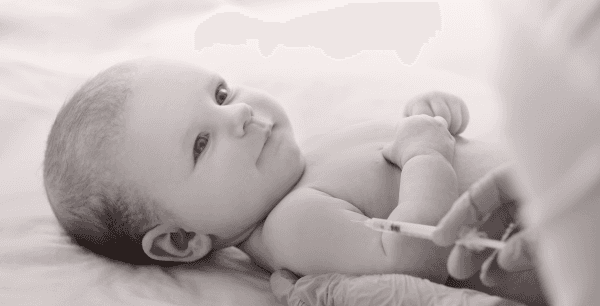Growth Monitoring
Welcome to our guide on growth monitoring in babies!
In the first week of life, weighing in is the initial step in a series of assessments aimed at ensuring your baby's healthy development.
As your little one grows, personalised monitoring plans are tailored to their unique needs, ensuring optimal growth and well-being.
Welcome to our guide on growth monitoring in babies!
In the first week of life, weighing in is the initial step in a series of assessments aimed at ensuring your baby's healthy development.
As your little one grows, personalised monitoring plans are tailored to their unique needs, ensuring optimal growth and well-being.
Welcome to our guide on growth monitoring in babies!
In the first week of life, weighing in is the initial step in a series of assessments aimed at ensuring your baby's healthy development.
As your little one grows, personalised monitoring plans are tailored to their unique needs, ensuring optimal growth and well-being.
Welcome to our guide on growth monitoring in babies!
In the first week of life, weighing in is the initial step in a series of assessments aimed at ensuring your baby's healthy development.
As your little one grows, personalised monitoring plans are tailored to their unique needs, ensuring optimal growth and well-being.
Welcome to our guide on growth monitoring in babies!
In the first week of life, weighing in is the initial step in a series of assessments aimed at ensuring your baby's healthy development.
As your little one grows, personalised monitoring plans are tailored to their unique needs, ensuring optimal growth and well-being.



Track your baby's development every step of the way with home visits.
I'd like to make an
I'd like to make an
appointment
Join us in safeguarding your child's future, one home visit at a time.
I'd like to make an
I'd like to make an
I'd like to make an
appointment
appointment
appointment



Why Growth Monitoring Matters:
Growth monitoring is crucial because it helps healthcare providers track your baby's physical development over time. By regularly measuring weight, length, and head circumference, healthcare professionals can detect any deviations from the expected growth trajectory early on. These measurements serve as important indicators of your baby's overall health and nutritional status.
The First Week Weigh-In:
During the first week of life, your baby's first weigh-in provides valuable baseline data. This initial measurement serves as a reference point for future assessments. In addition to weight, other vital signs such as temperature, heart rate, and breathing are also checked to ensure your baby's well-being
Creating an Individualised Monitoring Plan:
Following the initial weigh-in, healthcare providers develop a personalised growth monitoring plan for your baby. This plan takes into account various factors such as gestational age, birth weight, family history, and any specific health concerns. By customising the monitoring plan, healthcare professionals can ensure that your baby receives the appropriate level of care and attention.
Components of a Monitoring Plan:
After we see you for your first weigh-in and assessment, we will come up with a plan forward which will include:
Regular Check-Ups: These visits usually coincide with the immunisation schedule and are done at the same time. They allow for ongoing assessment of your baby's growth and development. During these visits, measurements of weight, length, and head circumference are recorded and compared to standardised growth charts.
Nutritional Guidance: Adequate nutrition is essential for healthy growth and development. Healthcare providers offer guidance on breastfeeding, formula feeding, and introducing solid foods at the appropriate age. Nutritional counselling ensures that your baby receives the necessary nutrients for optimal growth
Developmental Milestones: Monitoring your baby's developmental milestones is an integral part of growth monitoring. These milestones include physical, cognitive, and social skills that babies typically achieve at certain ages. Tracking milestones allows healthcare providers to identify any developmental delays early on and provide appropriate interventions if needed.
Parental Education: As a parent, you play a vital role in your baby's growth and development. Healthcare providers offer education and support to help you understand your baby's needs and how to promote healthy growth at home. Topics may include feeding techniques, sleep patterns, and infant care practices.
The Importance of Regular Monitoring:
Regular growth monitoring ensures that any issues or concerns regarding your baby's growth are identified and addressed promptly. Early intervention can prevent potential health problems and promote optimal development. By partnering with healthcare professionals and following the personalised monitoring plan, you can support your baby's journey towards a healthy and thriving future.
In conclusion, growth monitoring in babies is a comprehensive process that begins with the first weigh-in in the first week of life. Through individualised monitoring plans, healthcare providers track your baby's growth and development, ensuring that they reach their full potential. By actively participating in the monitoring process and seeking guidance from healthcare professionals, you can give your baby the best possible start in life.
Why Growth Monitoring Matters:
Growth monitoring is crucial because it helps healthcare providers track your baby's physical development over time. By regularly measuring weight, length, and head circumference, healthcare professionals can detect any deviations from the expected growth trajectory early on. These measurements serve as important indicators of your baby's overall health and nutritional status.
The First Week Weigh-In:
During the first week of life, your baby's first weigh-in provides valuable baseline data. This initial measurement serves as a reference point for future assessments. In addition to weight, other vital signs such as temperature, heart rate, and breathing are also checked to ensure your baby's well-being
Creating an Individualised Monitoring Plan:
Following the initial weigh-in, healthcare providers develop a personalised growth monitoring plan for your baby. This plan takes into account various factors such as gestational age, birth weight, family history, and any specific health concerns. By customising the monitoring plan, healthcare professionals can ensure that your baby receives the appropriate level of care and attention.
Components of a Monitoring Plan:
After we see you for your first weigh-in and assessment, we will come up with a plan forward which will include:
Regular Check-Ups: These visits usually coincide with the immunisation schedule and are done at the same time. They allow for ongoing assessment of your baby's growth and development. During these visits, measurements of weight, length, and head circumference are recorded and compared to standardised growth charts.
Nutritional Guidance: Adequate nutrition is essential for healthy growth and development. Healthcare providers offer guidance on breastfeeding, formula feeding, and introducing solid foods at the appropriate age. Nutritional counselling ensures that your baby receives the necessary nutrients for optimal growth
Developmental Milestones: Monitoring your baby's developmental milestones is an integral part of growth monitoring. These milestones include physical, cognitive, and social skills that babies typically achieve at certain ages. Tracking milestones allows healthcare providers to identify any developmental delays early on and provide appropriate interventions if needed.
Parental Education: As a parent, you play a vital role in your baby's growth and development. Healthcare providers offer education and support to help you understand your baby's needs and how to promote healthy growth at home. Topics may include feeding techniques, sleep patterns, and infant care practices.
The Importance of Regular Monitoring:
Regular growth monitoring ensures that any issues or concerns regarding your baby's growth are identified and addressed promptly. Early intervention can prevent potential health problems and promote optimal development. By partnering with healthcare professionals and following the personalised monitoring plan, you can support your baby's journey towards a healthy and thriving future.
In conclusion, growth monitoring in babies is a comprehensive process that begins with the first weigh-in in the first week of life. Through individualised monitoring plans, healthcare providers track your baby's growth and development, ensuring that they reach their full potential. By actively participating in the monitoring process and seeking guidance from healthcare professionals, you can give your baby the best possible start in life.
Why Growth Monitoring Matters:
Growth monitoring is crucial because it helps healthcare providers track your baby's physical development over time. By regularly measuring weight, length, and head circumference, healthcare professionals can detect any deviations from the expected growth trajectory early on. These measurements serve as important indicators of your baby's overall health and nutritional status.
The First Week Weigh-In:
During the first week of life, your baby's first weigh-in provides valuable baseline data. This initial measurement serves as a reference point for future assessments. In addition to weight, other vital signs such as temperature, heart rate, and breathing are also checked to ensure your baby's well-being
Creating an Individualised Monitoring Plan:
Following the initial weigh-in, healthcare providers develop a personalised growth monitoring plan for your baby. This plan takes into account various factors such as gestational age, birth weight, family history, and any specific health concerns. By customising the monitoring plan, healthcare professionals can ensure that your baby receives the appropriate level of care and attention.
Components of a Monitoring Plan:
After we see you for your first weigh-in and assessment, we will come up with a plan forward which will include:
Regular Check-Ups: These visits usually coincide with the immunisation schedule and are done at the same time. They allow for ongoing assessment of your baby's growth and development. During these visits, measurements of weight, length, and head circumference are recorded and compared to standardised growth charts.
Nutritional Guidance: Adequate nutrition is essential for healthy growth and development. Healthcare providers offer guidance on breastfeeding, formula feeding, and introducing solid foods at the appropriate age. Nutritional counselling ensures that your baby receives the necessary nutrients for optimal growth
Developmental Milestones: Monitoring your baby's developmental milestones is an integral part of growth monitoring. These milestones include physical, cognitive, and social skills that babies typically achieve at certain ages. Tracking milestones allows healthcare providers to identify any developmental delays early on and provide appropriate interventions if needed.
Parental Education: As a parent, you play a vital role in your baby's growth and development. Healthcare providers offer education and support to help you understand your baby's needs and how to promote healthy growth at home. Topics may include feeding techniques, sleep patterns, and infant care practices.
The Importance of Regular Monitoring:
Regular growth monitoring ensures that any issues or concerns regarding your baby's growth are identified and addressed promptly. Early intervention can prevent potential health problems and promote optimal development. By partnering with healthcare professionals and following the personalised monitoring plan, you can support your baby's journey towards a healthy and thriving future.
In conclusion, growth monitoring in babies is a comprehensive process that begins with the first weigh-in in the first week of life. Through individualised monitoring plans, healthcare providers track your baby's growth and development, ensuring that they reach their full potential. By actively participating in the monitoring process and seeking guidance from healthcare professionals, you can give your baby the best possible start in life.
Why Growth Monitoring Matters:
Growth monitoring is crucial because it helps healthcare providers track your baby's physical development over time. By regularly measuring weight, length, and head circumference, healthcare professionals can detect any deviations from the expected growth trajectory early on. These measurements serve as important indicators of your baby's overall health and nutritional status.
The First Week Weigh-In:
During the first week of life, your baby's first weigh-in provides valuable baseline data. This initial measurement serves as a reference point for future assessments. In addition to weight, other vital signs such as temperature, heart rate, and breathing are also checked to ensure your baby's well-being
Creating an Individualised Monitoring Plan:
Following the initial weigh-in, healthcare providers develop a personalised growth monitoring plan for your baby. This plan takes into account various factors such as gestational age, birth weight, family history, and any specific health concerns. By customising the monitoring plan, healthcare professionals can ensure that your baby receives the appropriate level of care and attention.
Components of a Monitoring Plan:
After we see you for your first weigh-in and assessment, we will come up with a plan forward which will include:
Regular Check-Ups: These visits usually coincide with the immunisation schedule and are done at the same time. They allow for ongoing assessment of your baby's growth and development. During these visits, measurements of weight, length, and head circumference are recorded and compared to standardised growth charts.
Nutritional Guidance: Adequate nutrition is essential for healthy growth and development. Healthcare providers offer guidance on breastfeeding, formula feeding, and introducing solid foods at the appropriate age. Nutritional counselling ensures that your baby receives the necessary nutrients for optimal growth
Developmental Milestones: Monitoring your baby's developmental milestones is an integral part of growth monitoring. These milestones include physical, cognitive, and social skills that babies typically achieve at certain ages. Tracking milestones allows healthcare providers to identify any developmental delays early on and provide appropriate interventions if needed.
Parental Education: As a parent, you play a vital role in your baby's growth and development. Healthcare providers offer education and support to help you understand your baby's needs and how to promote healthy growth at home. Topics may include feeding techniques, sleep patterns, and infant care practices.
The Importance of Regular Monitoring:
Regular growth monitoring ensures that any issues or concerns regarding your baby's growth are identified and addressed promptly. Early intervention can prevent potential health problems and promote optimal development. By partnering with healthcare professionals and following the personalised monitoring plan, you can support your baby's journey towards a healthy and thriving future.
In conclusion, growth monitoring in babies is a comprehensive process that begins with the first weigh-in in the first week of life. Through individualised monitoring plans, healthcare providers track your baby's growth and development, ensuring that they reach their full potential. By actively participating in the monitoring process and seeking guidance from healthcare professionals, you can give your baby the best possible start in life.
Why Growth Monitoring Matters:
Growth monitoring is crucial because it helps healthcare providers track your baby's physical development over time. By regularly measuring weight, length, and head circumference, healthcare professionals can detect any deviations from the expected growth trajectory early on. These measurements serve as important indicators of your baby's overall health and nutritional status.
The First Week Weigh-In:
During the first week of life, your baby's first weigh-in provides valuable baseline data. This initial measurement serves as a reference point for future assessments. In addition to weight, other vital signs such as temperature, heart rate, and breathing are also checked to ensure your baby's well-being
Creating an Individualised Monitoring Plan:
Following the initial weigh-in, healthcare providers develop a personalised growth monitoring plan for your baby. This plan takes into account various factors such as gestational age, birth weight, family history, and any specific health concerns. By customising the monitoring plan, healthcare professionals can ensure that your baby receives the appropriate level of care and attention.
Components of a Monitoring Plan:
After we see you for your first weigh-in and assessment, we will come up with a plan forward which will include:
Regular Check-Ups: These visits usually coincide with the immunisation schedule and are done at the same time. They allow for ongoing assessment of your baby's growth and development. During these visits, measurements of weight, length, and head circumference are recorded and compared to standardised growth charts.
Nutritional Guidance: Adequate nutrition is essential for healthy growth and development. Healthcare providers offer guidance on breastfeeding, formula feeding, and introducing solid foods at the appropriate age. Nutritional counselling ensures that your baby receives the necessary nutrients for optimal growth
Developmental Milestones: Monitoring your baby's developmental milestones is an integral part of growth monitoring. These milestones include physical, cognitive, and social skills that babies typically achieve at certain ages. Tracking milestones allows healthcare providers to identify any developmental delays early on and provide appropriate interventions if needed.
Parental Education: As a parent, you play a vital role in your baby's growth and development. Healthcare providers offer education and support to help you understand your baby's needs and how to promote healthy growth at home. Topics may include feeding techniques, sleep patterns, and infant care practices.
The Importance of Regular Monitoring:
Regular growth monitoring ensures that any issues or concerns regarding your baby's growth are identified and addressed promptly. Early intervention can prevent potential health problems and promote optimal development. By partnering with healthcare professionals and following the personalised monitoring plan, you can support your baby's journey towards a healthy and thriving future.
In conclusion, growth monitoring in babies is a comprehensive process that begins with the first weigh-in in the first week of life. Through individualised monitoring plans, healthcare providers track your baby's growth and development, ensuring that they reach their full potential. By actively participating in the monitoring process and seeking guidance from healthcare professionals, you can give your baby the best possible start in life.